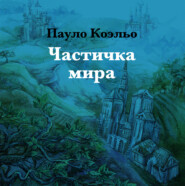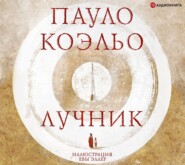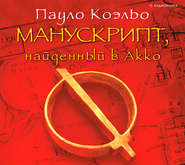По всем вопросам обращайтесь на: info@litportal.ru
(©) 2003-2024.
✖
Aleph
Автор
Год написания книги
2018
Настройки чтения
Размер шрифта
Высота строк
Поля
‘Make a commitment!’ J. had said.
The lobby is starting to fill up. At all such fairs, whether they’re promoting books or heavy machinery, the professionals tend to stay in the same two or three hotels, and most deals are sealed in hotel lobbies or at suppers like the one due to take place tonight. I greet all the publishers and accept any invitations that begin with the question ‘When are you going to visit our country?’ I try to keep them talking for as long as possible to avoid Mônica asking me what on earth is going on. All she can do is note down in her diary the various visits I’m committing myself to.
At one point, I break off my discussion with an Arab publisher to find out how many visits I’ve arranged.
‘Look, you’re putting me in a very awkward position,’ she replies in Portuguese, sounding very irritated.
‘How many?’
‘Six countries in five weeks. These fairs are for publishing professionals, you know, not writers. You don’t have to accept any invitations, I take care of—’
Just then my Portuguese publisher arrives, so we can’t continue this private conversation. When he doesn’t say anything beyond the usual small talk, I ask the question myself:
‘Aren’t you going to invite me to Portugal?’
He admits that he overheard my conversation with Mônica.
‘I’m not joking,’ I say. ‘I’d really love to do a book-signing in Guimarães and another in Fátima.’
‘As long as you don’t cancel at the last moment.’
‘I won’t cancel, I promise.’
He agrees, and Mônica adds Portugal to the diary: another five days. Finally, my Russian publishers – a man and a woman – come over and we say hello. Mônica gives a sigh of relief. Now she can drag me off to the restaurant.
While we’re waiting for the taxi, she draws me to one side.
‘Have you gone mad?’
‘Oh, I went mad years ago. Do you know anything about Chinese bamboo? It apparently spends five years as a little shoot, using that time to develop its root system. And then, from one moment to the next, it puts on a spurt and grows up to twenty-five metres high.’
‘And what has that got to do with the act of insanity I’ve just witnessed?’
‘Later on, I’ll tell you about the conversation I had a month ago with J. What matters now, though, is that this is precisely what has been happening to me: I’ve invested work, time and effort; I tried to encourage my personal growth with love and dedication, but nothing happened. Nothing happened for years.’
‘What do you mean “nothing happened”? Have you forgotten who you are?’
The taxi arrives. The Russian publisher opens the door for Mônica.
‘I’m talking about the spiritual side of my life. I think I’m like that Chinese bamboo plant and that my fifth year has just arrived. It’s time for me to start growing again. You asked me if I’d gone mad and I answered with a joke. But the fact is, I have been going mad. I was beginning to believe that nothing I had learned had put down any roots.’
For a fraction of a second, immediately after the arrival of my Bulgarian publishers, I had felt J.’s presence at my side and only then did I understand his words, although the insight itself had come to me during a moment of boredom, after leafing through a magazine on gardening. My self-imposed exile, which, on the one hand, had helped me discover important truths about myself, had another serious side-effect: the vice of solitude. My universe had become limited to a few friends locally, to answering letters and emails and to the illusion that the rest of my time was mine alone. I was, in short, leading a life without any of the inevitable problems that arise from living with other people, from human contact.
Is that what I’m looking for? A life without challenges? But where is the pleasure in looking for God outside people?
I know many who have done just that. I once had a serious and at the same time comical talk with a Buddhist nun, who had spent twenty years alone in a cave in Nepal. I asked her what she had achieved. ‘Spiritual orgasm,’ she replied, to which I replied that there were far easier ways to achieve orgasm.
I could never follow that path; it’s simply not on my horizon. I cannot and could not spend the rest of my life in search of spiritual orgasms or contemplating the oak tree in my garden, waiting for wisdom to descend. J. knows this and encouraged me to make this journey so that I would understand that my path is reflected in the eyes of others and that, if I want to find myself, I need that map.
I apologise to the Russian publishers and say that I need to finish a conversation with Mônica in Portuguese. I start by telling her a story:
‘A man stumbles and falls into a deep hole. He asks a passing priest to help him out. The priest blesses him and walks on. Hours later, a doctor comes by. The man asks for help, but the doctor merely studies his injuries from afar, writes him a prescription and tells him to buy the medicine from the nearest pharmacy. Finally, a complete stranger appears. Again, the man asks for help, and the stranger jumps into the hole. “Now what are we going to do?” says the man. “Now both of us are trapped down here.” To which the stranger replies: “No we’re not. I’m from around here and I know how to get out.”’
‘Meaning?’ asks Mônica.
‘That I need strangers like that,’ I explain. ‘My roots are ready, but I’ll only manage to grow with the help of others. Not just you or J. or my wife, but people I’ve never met. I’m sure of that. That’s why I asked for a party to be held after the book-signings.’
‘You’re never satisfied, are you?’ Mônica says in a tone of complaint.
‘That’s why you love me so much,’ I say with a smile.
In the restaurant, we speak about all kinds of things; we celebrate a few successes and try to refine certain details. I have to stop myself from interfering, because Mônica is in charge of everything to do with publishing. At one point, though, the same question is asked:
‘And when will Paulo be visiting Russia?’
Mônica starts explaining that my diary has suddenly got very crowded and that I have a series of commitments starting next week. I break in:
‘You know, I have long cherished a dream, which I’ve tried to realise twice before and failed. If you can help me achieve my dream, I’ll come to Russia.’
‘What dream is that?’
‘To cross the whole of Russia by train and end up at the Pacific Ocean. We could stop at various places along the way for signings. That way we would be showing our respect for all those readers who could never make it to Moscow.’
My publisher’s eyes light up with joy. He had just been talking about the increasing difficulties of distribution in a country so vast that it has nine different time zones.
‘A very romantic, very Chinese bamboo idea,’ laughs Mônica, ‘but not very practical. As you well know, I wouldn’t be able to go with you because I have my son to look after now.’
The publisher, however, is enthusiastic. He orders his fifth coffee of the night, says that he’ll take care of everything, that Mônica’s assistant can stand in for her, and that she needn’t worry about a thing, it will all be fine.
I thus fill up my diary with two whole months of travelling, leaving along the way a lot of very happy, but very stressed-out people who are going to have to organise everything at lightning speed; a friend and agent who is now looking at me with affection and respect; and a teacher who isn’t here, but who knows that I’ve now made a commitment, even though I didn’t understand what he meant at the time. It’s a cold night and I choose to walk back alone to the hotel, feeling rather frightened at what I’ve done, but happy too, because there’s no turning back.
That is what I wanted. If I believe I will win, then victory will believe in me. No life is complete without a touch of madness, or to use J.’s words, what I need to do is to re-conquer my kingdom. If I can understand what’s going on in the world, I can understand what’s going on inside myself.
At the hotel, there is a message from my wife, saying that she’s been trying to contact me and asking me to phone her as soon as possible. My heart starts pounding, because she rarely phones me when I’m travelling. I return her call at once. The seconds between each ring seem like an eternity.
Finally, she picks up the phone.
‘Véronique has had a serious car accident, but, don’t worry, she’s not in any danger,’ she says nervously.
I ask if I can phone Véronique now, but she says not. She’s still in hospital.
‘Do you remember that clairvoyant?’ she asks.
Of course I do! He made a prediction about me as well. We hang up and I immediately phone Mônica’s room. I ask if, by any chance, I’ve arranged a visit to Turkey.
‘Can’t you even remember which invitations you accepted?’
No, I say. I was in a strange state of euphoria when I started saying ‘Yes’ to all those publishers.

















